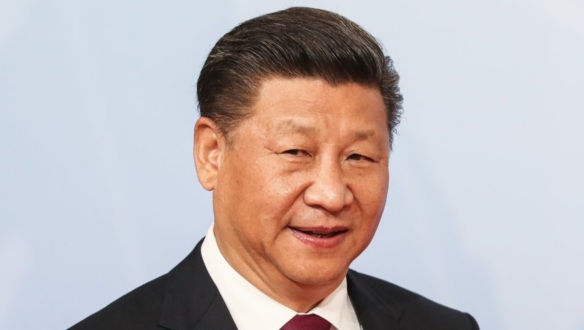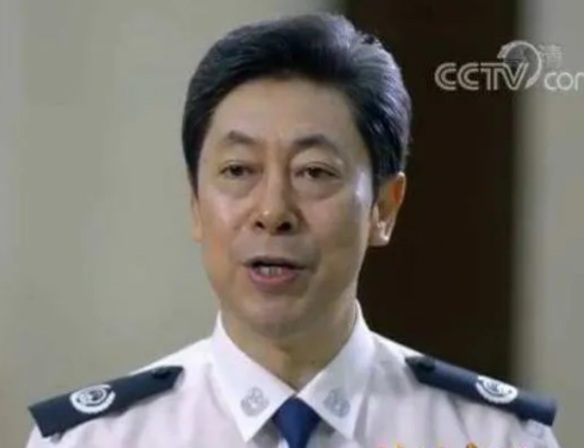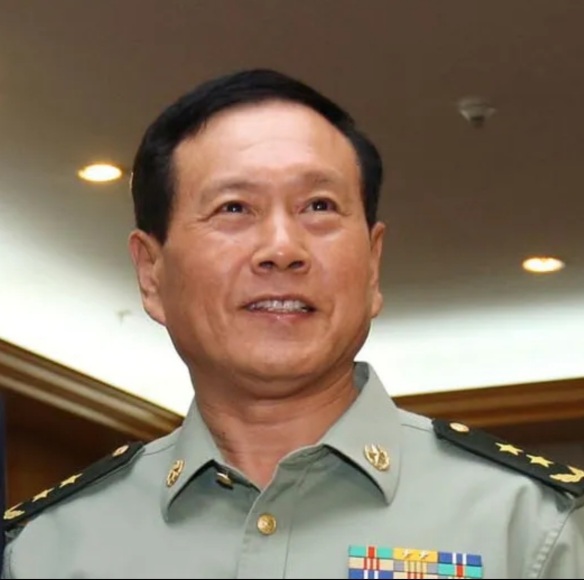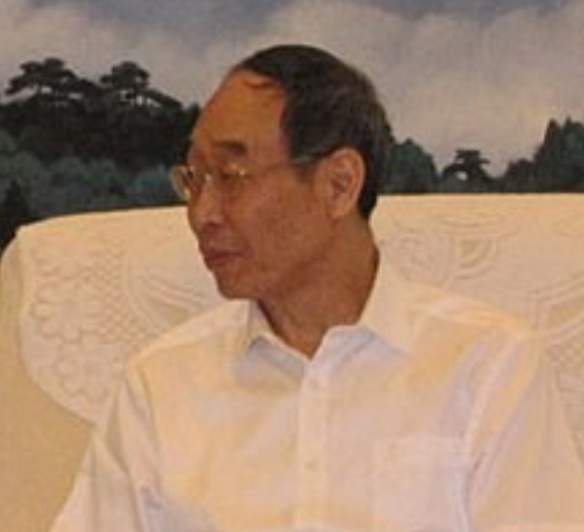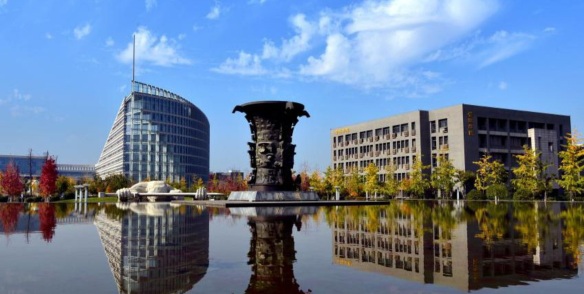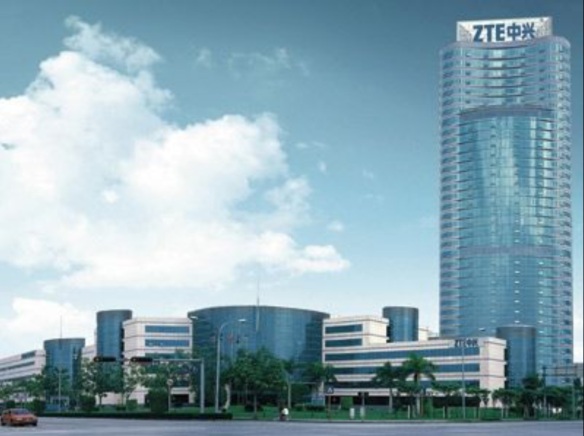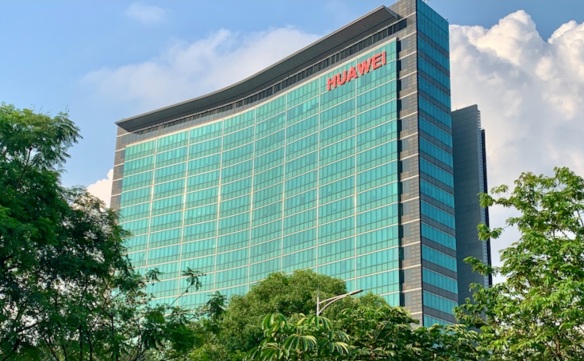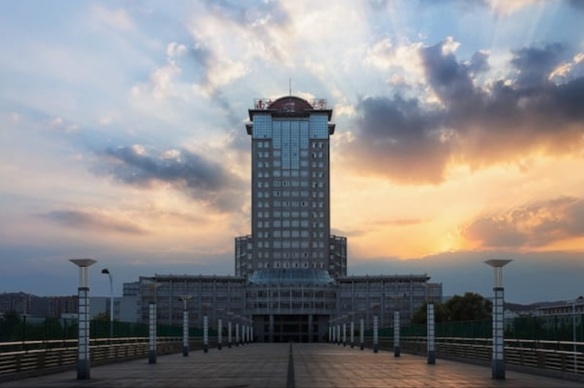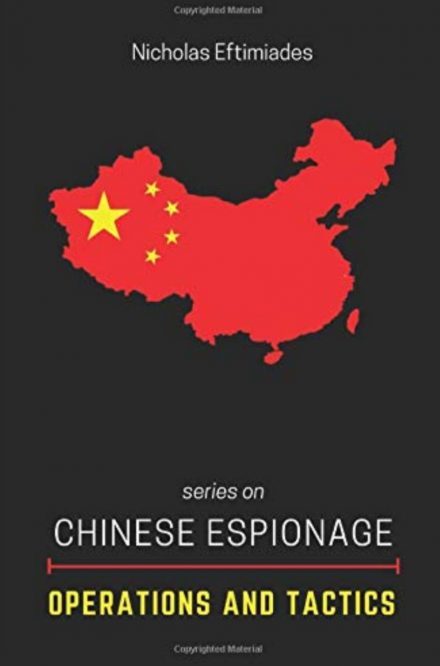Map of Taiwan (above). Note on the map that part of Taiwanese population lives on islands in the Taiwan Strait and the East China Sea, perilously close to the shore of Mainland China. Despite being a tacit ally, and over the years occasionally directly declared one by some hardline US politicans, Taiwan is understood internationally to be part of China, and Beijing refers to it as a province. China says it has held claim over the island since 239 AD. There could be no greater insult to Beijing than to hear Washington come close in words to declaring Taiwan to be an ally and within its sphere of influence and that maintaining its independence falls within US interests. It is uncertain how much longer People’s Republic of China President Xi Jinping and other Communist Party of China leaders will be able to stomach what they likely perceive as the shameful global image of their new China, after literally centuries of subservience to Western powers, still unable to claim its own sovereign territory from them. Examined here is how this sentiment and others infrequently broached likely influence Party and People’s Liberation Army decisionmaking on Taiwan.
It is uncertain whether the US and its allies through their words and actions have successfully mitigated the People’s Republic of China’s plans to take control of Taiwan or Beijing is simply approaching the task very methodically, on its own schedule, leaving no appearance of feeling rushed to act militarily. What is clear however, under both circumstances, it is clear that perceptions in Beijing on either will ultimately determine how China will act. What those perceptions may prove to be is of concern among the US public. An April 3, 2021 Pew research study found that 89 percent of adults in the US “consider China a competitor or enemy rather than a partner.” The percentage of those who harbored “cold” feelings toward China increased from 46 percent in 2018 to 67 percent in 2021. During the same interval, poll participants in the US who held “very cold” feelings toward China more than doubled, from 23 percent to 47 percent. More than a few foreign and national security policy officials in the US and its allies, likely hope the status quo will hold fast. Imaginably, enough simple facts could be aggregated that might go some way to explain and support that position, which might be reasonably recognized as charitable. A temper of the soul wants to live in illusion. However, it must be accepted that convincing Beijing to surrender what it declares to be its sovereignty over Taiwan, may be akin to convincing a devoted mother to surrender her child. The Communist Party of China may even say its lead by an even deeper sense of a rightful custody. This is a very dangerous business and it appears less than likely that some peaceful resolution will be found to satisfy Beijing regarding Taiwan given how both sides have staked their respective interests. Peior est bello timor ipse belli. (Worse than war is the very fear of war.)
In attempting to inspire thinking beyond the typically raised geostrategic issues concerning US dominance in the Indo-Pacific and China’s challenge to that and the stature it has acquired as it continues to grow as a regional hegemon, and get beyond the geopolitical dynamics of East versus West, Chinese Communism versus capitalism, the eventual victory of the Communist Revolution worldwide, and so on, one might successfully discover that there are other aspects to consider in looking at key elements that drive the thinking of the Communist Party of China on Taiwan. Further thinking on matters is always possible.
The intent of greatcharlie with this essay is to offer a few new ideas that may stimulate others to peer more deeply into Beijing’s ongoing actions and intentions. Most were inspired following it’s reread of Robert Spalding’s Stealth War: How China Took Over While America’s Elite Slept (Portfolio, 2019), on which greatcharlie posted a book review on November 30, 2021. It is unlikely that all readers will find what greatcharlie presents as agreeable, this is most likely possible in the portions of the discussion that concerns how China may approach Taiwan militarily and the discussion on the possible influence of race and history upon thinking on the US by Communist Party of China leaders. However, sometimes making the effort to stimulate new ideas requires stepping a bit onto what might be deemed shaky ground. Praeterea qui alium sequitur nihil invenit, immo nec quaerit. (Besides, he who follows another not only discovers nothing but is not even investigating.)
People’s Republic of China President and Communist Party of China Party Secretary Xi Jinping (above). There could be no greater standing insult to a more audacious and assertive China than to stand by while Washington declares Taiwan, China’s own province, to be an ally and within its sphere of influence and that maintaining its independence is in US interests. According to the facts as one knows them, the US and China since 1971 have had an implicit understanding that Washington would not recognize Taiwan as a sovereign country, and China would take control of Taiwan by force. As the US since then has done as much as possible, short of recognition of Taiwan as an independent country, to provide support for the government in Taipei, one might reasonably sense that in the eyes of the Communist Party of China, the US, through its policy approaches toward the island, exercises its power over China. There is an art in the way Xi moves. If there is a way he can take control of Taiwan with acceptable loss by his calculus, he will very likely act.
Immediate Thoughts on US Regarding Taiwan That Likely Beat the Brains of Leaders in Beijing
Assessing the aggregate of sentiment expressed by the leadership of the Communist Party of China, one might posit that they believe their country’s stand, one-on-one with the US, which at one time for most of them appeared to be an indomitable power, is nothing less than heroic. At the same time, however, there is very likely some quiet recognition that Taiwan is a manifestation, a very apparent sign, of US dominance in the Asia-Pacific region. Despite being an tacit ally of the US, Taiwan is understood internationally to be part of China, and Beijing refers to it as a province. China says it has held claim over the island since 239 AD. There could be no greater insult to a more audacious and assertive China than to stand by while Washington comes close in words to declaring Taiwan to be an ally and within its sphere of influence and that maintaining its independence falls within US interests. The US approach on Taiwan has been conspicuously at variance to that taken toward China for decades on the economic front.
According to the facts as one knows them, the US and China have had an implicit understanding that Washington would not recognize Taiwan as a sovereign country, and China would take control of Taiwan by force. It is an agreement that resulted from US Secretary of State Henry Kissinger’s secret visit to Beijing in 1971. As the authorized version of the story goes, during talks with the People’s Republic of China First Premier Zhou Enlai, Kissinger agreed the US would “recognize the government in Beijing, not Taipei, as the only legitimate China.” During a November 15, 2021 virtual meeting between US President Joe Biden and Communist Party of China under People’s Republic of China President and Communist Party of China Party Secretary Xi Jinping, the issues of Taiwan’s status and security were broached. Reportedly, Biden underscored that the US was still committed to the “one China” policy, guided by the Taiwan Relations Act, the three Joint Communiques, and the Six Assurances. However, he also explained that the US was strongly opposed to any unilateral efforts to change the status quo or undermine peace and stability across the Taiwan Strait.
Given that the US for quite some time has been doing as much as possible, short of recognizing Taiwan as an independent country, to provide support for the government in Taipei, one might reasonably sense that in the eyes of the Communist Party of China, the US, through its policy approaches toward the island, exercises power over China. There may also be a belief within the Party that the US enjoys exercising that power. It is uncertain how much longer Xi and other Communist Party of China leaders will be able to stomach what they may likely perceive as the shameful image presented throughout the world of their new China, a supposed power, after literally centuries of subservience to Western powers, still unable to claim what is, by its own declarations, its own sovereign territory. All of China’s taunts of becoming the dominant power in the world appear to amount to nothing more than whistling in the wind. Certainly, regarding Taiwan, China does not display itself as the rising world power that it pretends to be.
Surely, some foreign capitals have begun to believe Its military power and capabilities have been subject to hyperbole. Indeed, many in the world, watching it all transpire might be left with the impression that there is not a thing China can do about except lie back and take it, as unpleasurable as it may feel. An October 12, 2021 Newsweek article indicated that such feelings about the unlikelihood of China doing anything about Taiwan were recorded in a poll on the island. According to a public opinion survey released on September 29, 2021 by Taiwan’s opposition-run think tank, Intelligentsia Taipei, it was revealed that despite the apparent gathering shadows, 50.2 percent of respondents were little concerned about the prospect of war with China compared to 42.5 percent who were. Moreover, 58.8 percent believed a war with China was unlikely to happen in the next 10 years, compared to 17.6 percent who thought it was probable. A slender 2.2 percent were certain war was coming within this decade.
“Peace in Our Time”
Admirably discussed in Spalding’s Stealth War, are the matters of past US administrations’ blindness towards China’s actions and intentions and the importance of how Beijing assesses how Washington would respond to a move to retake Taiwan. In his search for a reason, a rationale, a purpose, for the current state of relations with China, Spalding, led by the data available to him explains it was the “errant” policy positions of former US administrations. At the core of those policies pursued, according to Spalding, was the misguided belief that economic development would lead the way to China’s transformation to a more democratic form of government and away from Communism. As he explains it, one is left to contemplate how such a horrifying blunder could continue on for so long. Attractive lies can worm their way into the intellect.
Regarding Beijing’s assessments on Washington’s most likely response to its taking control of Taiwan, pertinent is Spalding’s focus on how preceding US administrations perceived, constructed policies, and acted on China. It would appear that in current times, the way in which the US and its allies will respond to a move against Taiwan is how it will perceive China’s action toward its overall interests in the region. Despite what most might imagine, war may not be the obvious choice. Parsing out such concerning the US must be an ongoing process, an obsession, in Beijing at the moment. It would be part of the effort to determine how the US might react when presented with a situation as an assault on Taiwan.
Quod bellum oderunt, pro pace cum fide laborabant. (Because they hated war, they were working for peace with fidelity.) Presently from Washington’s perspective, the door must be left open to type of contrition in diplomacy. Within time perceived to be available as conflict appears to draw, there must exist an opportunity to amend a position. Hypothetically, there may be an epiphany within logic and reason that leads one side to align itself with a view closely matching the other. The expectation is for senior policymakers to master the situation through their management of it. When this is the case, they can often be more precise, to an extent exact, in policy planning, formulation, and implementation. On the other hand, policymakers can sometimes be out of touch with the real situation and act on mere perceptions and perhaps faulty inferences. Errant consilia nostra, quia non habent quo derigantur; ignoranti quem portum petat nullus suus ventus est. (Our plans miscarry because they have no aim. When a man does not know what harbor he is making for, no wind is the right wind.)
There remains the real possibility that a train of atrocious, unimaginable, grave events may come to such a head that it might be impossible to wait even an hour before taking the correct action. Fighting the type of war that the US might be required to prosecute, defeat China, thwart China’s ambitions, drive it off and forever away from Taiwan might not be characteristic of certain leaders. In taking that course, there would be the potential for millions to die in China, unacceptable losses on the side of the US and its allies. Additionally, as grotesque as the thought may be, China could potentially level an unexpected, crippling blow to US naval and air forces could also result. Indeed, what might be hoped in Beijing to be a limited lighting war attack launched in the name of protecting China’s sovereignty, could become total war, a war of national survival. (Note that there is no intention by greatcharlie to put into question the personal qualities of the men and women who have honorably chosen to dutifully serve the people to the best of their abilities.) As noted in greatcharlie’s November 30, 2021 review of Stealth War, perhaps in Washington, a decision has already been made on how to proceed in such a contingency. Perhaps the decisions on the defense of Taiwan have been established as protocols. In defense of its ally, US political leaders may be obliged to comply with them. If no such protocols exist, in the end, it will boil down to what the US political leaders want from the situation, a war ending in a type of Pyrrhic victory with losses or a struggle resulting in some acceptable or tolerable new paradigm that allows for an Irenic victory, in which the two opposing sides find some resolution and at least a modicum of satisfaction.
During the Cold War, US assessments of a possible conflict initiated by the Soviet Union and its Warsaw Pact satellites was a surprise attack across the Iron Curtain initiated with conventional weapons. As discussed in greatcharlie’s March 16, 2014 post entitled, “Obama Urges Putin to Pursue Diplomacy; After Crimea Is Firmly Under Russian Control, Perhaps He Will”, Bernard Brodie explained in his renowned work on military affairs and statecraft, War and Politics (Macmillan, 1973): “The attack might be general along the line, intended to wipe out NATO and take over Western Europe to the Pyrenees.” However, Brodie also suggested that “there might be some variation in diminished form, like what became known as the ‘Hamburg grab.’ In the latter instance, the Soviet forces would slice around the important city of Hamburg and then leave it up to us to try to take it back—which without large conventional forces we obviously could not do unless we were prepared for a nuclear holocaust.” In contemporary times, the question of how the US and its NATO allies might respond when Russian Federation forces marched in Crimea which was the sovereign territory of a NATO partner–not a Member State–in 2014. The manner in which the US responded on the Crimean matter could possibly have enormous implications concerning Beijing’s thinking on Taiwan.
Lex talionis. (The law of retaliation.) As far as one knows, central to arguments made in Beijing to take military action to gain and retain control of Taiwan, may very well be what was central to the argument on taking all available steps to subtly exploit the US investment in China’s possible development into a more democratic society; the character of the US political leadership. Indeed, as consideration of the character of US political leaders did much to place the US in the current challenging position with Beijing, it may influence a decision by Beijing to go to war. To that extent, the nature of the one who would make the decision in the US on how to respond to China’s aggression will make all of the difference.
People’s Liberation Army Ground Force General Li Zuocheng, Chief of the Joint Staff Department of the Central Military Commission (above). As far as one knows, central to arguments made in Beijing to take military action to gain and retain control of Taiwan, may very well be what was central to the argument on taking all available steps to subtly exploit the US investment in China’s possible development into a more democratic society; the character of the US political leadership. Indeed, as consideration of the character of US political leaders did much to place the US in the current challenging position with Beijing, it may influence a decision by Beijing to go to war. To that extent, the nature of the one who would make the decision in the US on how to respond to China’s aggression will make all of the difference.
Begrudging Acceptance of a New Paradigm?
Tacit and explicit threats of a military response to an assault by China on Taiwan may with difficulty be recognized as a failed effort at deterrence. Domino theories and arguments based on the like predicting China’s systematic conquest of one US ally in the Indo-Pacific region after another may fail to gain traction among the most senior decision makers in Washington. That case would be made that all along it was recognized that Taiwan’s case was quite different from that of sovereign countries in the region. If anything, in the face of Taiwan being grabbed by a People’s Liberation Army (PLA) blitzkrieg, regional allies will need to strengthen their military partnerships and coordination with the US more than ever. In the capitals in which wisdom is exalted, leaders will immediately recognize that reality.
Though very aggressive statements may be made and every coercive tool other than war, particularly economic, would surely be used, military action that may lead to devastating attacks on regional allies, increasing the loss of life, may not be seen as the best way to establish a new dynamic with a relative world power. China in control of Taiwan might be albeit reluctantly accepted as a new paradigm.
Possible War with China over Taiwan
Forecasts of all types have been made on how a conflict between China and US and its allies will ignite. Perchance there may be points in each of some value. Perhaps some are worthy of great consideration. Still, in the end, they may prove to be in the aggregate, a mass of mistaken theories, indicating that there is no certitude or uniform position established on how the PLA will come at Taiwan. For long-time China watchers and the newly interested, the near deluge of newspapers, magazine, and broadcast and online reports up to journal articles and scholarly studies on Taiwan has left available a mass of diverse assessments, making the possibility of twinkling out the most likely scenario from the pack far more difficult. Ficta voluptatis causa sint proxima veris. (Fictions should approximate the truth in order to please.)
Reuters’ Predictions
Warplanners of the armed forces of the US and its allies surely without fail have established in their professional judgment what they believe to be the most viable. There is a fairly popular theory discussed in the US newsmedia that the PLA is waging so-called gray-zone warfare against Taiwan, lending support to the theory that China’s effort to retake the self-governed territory is already underway. Gray-zone warfare reportedly includes: an almost daily campaign of threatening military exercises, aerial and naval patrols, and all manner of surveillance. China has also used sand dredgers to swarm Taiwan’s outlying islands. In response, the US and its allies have accelerated, weapons sales to Taiwan, Taiwanese regular and reserve forces have improved readiness, stockpiled munitions, organize for asymmetric warfare: It disperses and conceals hundreds of lethal, long-range missiles capable of striking at the PLA’s superior force of warships, aircraft and targets inside Chinese have been dispersed. Further reports indicate that military planners in China, the US, Taiwan, Japan and Australia are expectedly gaming out scenarios for how an attack should launch, how the island’s defenders should act, and what the likely outcome will be. As the attacker, experts recognize that China has a range of options. Options suggested include seizing Taiwan’s outlying islands such as Quemoy and Matsu and the remote Pratas Islands, military and economic blockades, or least likely, invasion.
An intriguing November 5, 2021 Reuters online report entitled, “Reuters Investigates T-Day: The Battle for Taiwan,” examined some of the conflict scenarios. It is based on interviews with close to a dozen military strategists and 15 current and former military officers from Taiwan, the US, Australia and Japan and drawing from articles in US, Chinese, and Taiwanese military and professional journals and official publications.
It is assessed by many of Reuters‘ military experts that top PLA commanders would likely convince Xi that an invasion, even under the most volatile circumstances, would be the biggest and most complex amphibious landing ever attempted, and is beyond the PLA’s capabilities. The alternative they foresee is an effort by China to launch a devastating air and missile attack on the island’s defenses. The military objective would be to destroy Taiwan’s military, demoralize the population and force Taipei to the negotiating table before the US and its allies can intervene.
Four PLA Dong Feng-26 (DF-26) ballistic missiles (above). The DF-46 missile is feet long, 44,000 pounds, and built to carry both conventional and nuclear warheads–was designed to obliterate aircraft carriers. It has a range of 2,500 miles, which means it can strike US warships in the western Pacific Ocean, including ships based in Japan. In order to deploy a carrier’s bombers on a mission in the South China Sea, a US aircraft carrier would have to come within the range of DF-26 and other missiles that would destroy it. The sheer amount of smaller, long-range ballistic missiles at China’s disposal and the blazing speed with which these weapons travel–six thousand miles in thirty minutes–pose, at the moment, an enormous threat to US warships.
What Must Be Remembered from Stealth War
In Stealth War, Spalding tosses into the debate on the defense of Taiwan the reality that China has thousands of precision warheads tied to a sophisticated command and control system. He expounds on this by pointing out that the Dong Feng-26 (DF-26) ballistic missile–46 feet long, 44,000 pounds, and built to carry both conventional and nuclear warheads–was designed to obliterate aircraft carriers. The DF-26 has a range of 2,500 miles, which means it can strike US warships in the western Pacific Ocean, including ships based in Japan. He gets across the idea that in order to deploy a carrier’s bombers on a mission in the South China Sea, the carrier would have to come within the range of DF-26 and other missiles that would destroy it. Though noting that the US Navy has SM-6 interceptor missiles, thought to be capable of destroying the DF-26, Spalding leaves no doubt that the sheer amount of smaller, long-range ballistic missiles at China’s disposal and the blazing speed with which these weapons travel–six thousand miles in thirty minutes–pose, at the moment, an enormous threat to US warships. To that extent, he writes: “It is conceivable that an undetected conflict might end in thirty seconds. Game over.” That is a hard saying.
Gnawing on the subject a little bit more, Spalding explains that when assessed from an economIc standpoint, the PLA constructed a $1 billion dollar missile system designed to destroy a $30 billion ship. Spalding says that there is no doubt our carriers are valuable and powerful machines. However, in plain English he also states that “their effectiveness in policing the Pacific is now extremely limited.” To that extent, ironically, the wrong message may have been repeatedly sent at an exorbitant cost. Again, introspectively, the value of the option for the US and its allies is the opportunity to rehearse cooperation, display joint power, and appreciate benefits of US leadership. Other than that and attendant technical accomplishments, in deterring China the move is valueless. In fact, no matter how necessary some action, some display would be in the face of challenges presented by Beijing to Taiwan, no greater support could be provided to the cluster of expressive hawks within the leadership in the Communist Party of China under Xi, mustering for a national war with the US.
The Digital Battlefield: A Decisive Factor?
Information and the technology used to generate, transmit, process, store, and manipulate it, has well become the primary means of obtaining an offensive or defensive advantage. Perhaps readers can cast their minds back to the era when strategists, tacticians, and military analysts were exploring the many possibilities resulting from its use in warfare. One article that greatcharlie recalls was entitled “Information Warfare: Good News and Bad News,” published in 1997 by then US Army Major Keith D. Anthony in Military Intelligence. In the 25-year-old article–which greatcharlie fortuitously discovered online, posted by the Federation of American Scientists, the author explained that military history is replete with examples of how information has been used in conflicts. He stated, “It has always been sought; sometimes it has even been used effectively, and sometimes it has been vital. The common thread, though, has been that physical engagements were still necessary to impose one’s will upon the enemy. Information warfare changes the rules.”
In the 1997 Military Intelligence article included the discussion of a translated “Military Forum” column by Zhang Feng and Li Bingyan, “Historical Mission of Soldiers Straddling 21st Century Roundup of ‘Forum for Experts on Meeting Challenge of the World Military Revolution’,” in Beijing Jiefangjunm, 2 January 1996. It reveals that over 25 years ago, the two authors recognized that this significant change had occurred in the nature of warfare, even calling it a military revolution. To that extent, one author explained, information technology is the nucleus and foundation of this revolution, for it is information and knowledge that bring change to the old practice that the military strength of an army was measured simply by the number of its armored divisions, air force wings, and aircraft carrier groups. He further stated that today, a number of invisible forces need to be taken into consideration, which include the calculation capacity, the telecommunications volume, and the reliability and real-time reconnaissance ability of relevant systems.
In the aforementioned 1996 conference paper on the burgeoning role of information technology in warfare, the notion of a digital wing of the PLA or intelligence services was nominal, only conceptualized. However, it soon became a reality. As Spalding explains in Chapter 5: “The Digital Battlefield”, in Stealth War, in making it so, it was determined that the PLA, an official security wing of the Communist Party of China, would become more than a national army, in the traditional sense of the term. Spalding goes on to explain that an organization, designated Unit 6139, became the PLA’s massive cyber warfare division. He deems it a politically sanctioned hostile military force built to prey on the West day in and day out. To that end, the PLA engages in digital assaults to access data that are both destructive–entrapping and disrupting the West by setting off digital landmines, raids, and intelligence operations–and constructive. The results of these operations–covertly harvested data–have allowed China to amass influence and power. In a political warfare mode, the goal of such work is to obtain and use influence to force other countries to cede to its way of looking at the world–how to organize society, what rights citizens should have, and encourage economic decisions that will benefit China
Spalding writes that by 2008, several published reports indicated that the Chinese government was paying tens of thousands of citizens 50 Chinese cents–the equivalent of 7 US cents–each to write an independent post promoting Party policy. By 2013, China’s state-run media reported that the propaganda wing of the Communist Party of China had hired 2 million “public opinion analysts.” Spalding assesses that number has climbed since, aided by an estimated 10 million student volunteers, who also engage in monitoring and disinformation work, both at home and on foreign websites. Meanwhile, the PLA’s force of hackers, continued to wander with near impunity, hidden, putting US counterintelligence in their shade, and continues to bombard US companies, government agencies, and political parties today
Perhaps it is bitter thIs, but an assault on Taiwan will be the occasion that among the near countless pieces of secret information, intellectual property, and actual technologies collected by China’s intelligence services, there was everything needed to thwart a successful defense of Taiwan. For the those wretched citizens and legal permanent residents of the US, who were accepted and ascended to positions of importance enough in their government, corporate, high-tech, or academic institutions to be sought out by Chinese intelligence officers and due to venal, self-interest, ideology, conspiracy, or dispaysment and love of homeland, chose to betray their country, as well as their organizations, colleagues and fellow citizens, perhaps there will be satisfaction knowing their villainy led to a prospective tragedy. For those whose responsibility was to halt the capture of key information and technologies that may have led to some tragic outcome and intercept Chinese intelligence officers who encouraged betrayal, there would surely be, among those really interested, a great burden of failure and loss, guilt and regret, to bear which could potentially take a lifetime to heal, if ever
Xi (above) during an inspection of the command center of PLA’s Joint Battle Command. The battle-dress camouflage uniform indicates that he is Commander-in-Chief of the PLA’s supreme Joint Battle Command. Xi is the long-time Chairman of the Central Military Commission. How China manages to pull Taiwan back in its fold permanently may not be as important to Xi as just getting hold of the island. Securing the island quickly with as few losses in personnel and material as possible, may require something a far cry from using the operational art, and acting with combined arms decisively to conquer territory. That may require both the complete destruction of the military capacity of Taiwan, and the complete and total destruction of property and eradication of those living there. A strategy of this type is known in military terms as a “battle of annihilation.” PLA commanders and warplanners would surely be prepared to execute such.
Pertinent Concerning Thinking of Communist Party of China Leadership and PLA Commanders about Taiwan
How China manages “to pull Taiwan back in its fold permanently” may not be as important to Xi as just getting hold of the island, again, as it is what the Communist Party of China “knows” to be China’s sovereign territory. There are military options available for reclaiming Taiwan that take a turn toward the sinister. Securing the island quickly with as few losses in personnel and material as possible, may require something a far cry from using the operational art, and acting with combined arms decisively to conquer territory. Achieving that military objective may require both the complete destruction of the military capacity of Taiwan, and the complete and total destruction of property and eradication of those living there. A strategy of this type is known in military terms as a “battle of annihilation.” PLA commanders and warplanners would surely be prepared to execute such.
Such thinking should not be deemed too fanciful or alien. To keep the discussion of the postulation brief, a model to ponder in order to better understand such an approach could be measured against how China’s military partner, the Democratic People’s Republic of Korea (North Korea), has made the complete destruction of the capital of the Republic of Korea (South Korea), its most likely adversary, central to its defense. Indeed, it is well-accepted that North Korea has had an estimated 200,000 artillery pieces aimed at Seoul for quite some time. Ostensibly, the threat of the destruction of Seoul from the North Korean perspective was established as a deterrent to any thoughts the South Korea’s most powerful ally, the US, might have of invading and reuniting the island by force. Yet, from another perspective, the destruction of Seoul would avoid the need to capture it by ground assault. The decisionmakers and warplanners in Pyongyang have never been under any illusion that the government in Seoul would allow the North’s control of its capital and an urban battle similar to those witnessed during World War II in places such as Stalingrad (1942), Caen (1944), Manila (1945), Berlin (1945), to name only a few would delay offensive action and drain resources for initial attacks on other critical points as well as likely plans for decisive engagements in depth. With this in mind, it may not be as difficult to consider that thinking in Beijing concerning a PLA assault against Taiwan, mutatis mutandis, may be similar in concept to that of Pyongyang for Seoul. The destructive effort, of course, would be on a far larger scale. The defense of Taiwan will be ferocious. Its struggles against China’s opening attacks, however, would appear self-destructive and self-defeating. Ostensibly, the sheer weight and power of the PLA juggernaut as organized would overcome whatever defense Taiwan might have in place. On Taiwan, the scene would be nothing less than apocalyptic.
With regard to a likely decision to attack essentially all structures on Taiwan, it must be considered that the independently minded Taiwanese government falls into one of the categories of what the Communist Party of China declared to be the “five poisons.” Those five include: Uyghur advocates of the East Turkestan Independence Movement; Tibetan advocates of the Tibetan independence movement; believers of the Falun Gong; followers of China’s democracy movement; and, adherents of the Taiwan independence Movement. Looking at the matter from that angle, one might imagine leaders of the Communist Party of China long ago recognized that even if China captured the island and gained control of what remained of its civilian population, surely the work of re-education could far surpass the level of exertion put into the Uyghurs, Tibetans, and people of Hong Kong combined. Re-education indeed may have been assessed to be so difficult that it may not at all be a part of reconstruction and rejuvenation planning for the island. The sinister solution would be to mitigate the problem during the military assault. Those Taiwanese who might remain, the survivors, would most likely be relocated, probably dispersed. Far worse acts against the people–for instance the Great Leap Forward and the Cultural Revolution–blaze on the pages of Communist China’s history. The Communist Party of China’s leaders would likely be concerned that spectacle of re-education camps on the island, following a destructive assault, would hinder any post-assault diplomatic efforts to create normalcy and do much to put China’s claim to a world in jeopardy, especially given the world’s reaction to camps in Xinjiang.. Imaginably, Xi would want to avoid that after the military assault
Among those in the world rightly concerned with the circumstances of ethnic and religious minorities in China, the moral fiber of Xi has certainly been looked upon darkly by. As aforementioned, the Uyghurs, Tibetans, as well as Falun Gong and Christians are roughly handled, pressured to uncouple from their culture and traditions, philosophies, and religious tenants and assimilate into culture and beliefs of Chinese Communism. If Xi can be viewed as contorted morally on those issues and just for being able to direct state security organs to act monstrously against his own citizens on mainland China in the name of preserving the integrity of the Communist Movement and the country, and putting counterrevolutionaries and reactionaries, and organized and individual criminals, there should little doubt that Xi would do whatever he thought was necessary to gain and retain control of Taiwan.
Ethnic Uyghurs standing in formation in a secured facility (above). China’s Xinjiang region is home to around 10 million Uyghurs, Turkic Muslim people by identity. In a report released on April 19, 2021, Human Rights Watch accused the Chinese government of engaging in a systematic campaign of human rights violations against Uighur Muslims in northwestern Xinjiang, an autonomous region in the country. Up to 1 million people, or about 7 percent of the Muslim population in Xinjiang, have been incarcerated in an expanding network of “political re-education” camps, according to US officials and UN experts. One might imagine leaders of the Communist Party of China long ago recognized that even if China captured Taiwan and gained control of what remained of its civilian population, surely the work of re-education could far surpass the level of exertion put into the Uyghurs, Tibetans, and people of Hong Kong combined. Re-education indeed may have been assessed to be so difficult that it may not at all be a part of reconstruction and rejuvenation planning for the island when captured. The sinister solution would be to mitigate the problem during the military assault. Far worse acts against the people–for instance the Great Leap Forward and the Cultural Revolution–blaze on the pages of Communist China’s history.
Taiwan Pummeled?
The prospective unending aerial and naval bombardments and a long range missile onslaught from mainland China would not resemble what may already be expected and planned for. As aforementioned, there is the belief that attacks with firepower will be used not only to weaken Taiwanese forces, but destroy morale on the island and force the Taipei government to the negotiating table. However, that would take a considerable amount of time to achieve. There is a line of thinking characteristic of analyses of what is likely to happen in the event of a Chinese assault on Taiwan that leaves time available for friendly action. Sentiment should never serve as a substitute for true feeling and fact. One could be assured that the lapse of time between a prospective Chinese assault on Taiwan and the movements of the US and its allies in response has been factored into any strategy developed by PLA commanders and warplanners. Within that interval, whatever calculation of that time and distance has been predicted by PLA warplanners for the movements of their opposition, would likely be the time frame set for successful action. It would be that anticipated time frame the Communist Party of China will expect Taiwan to fall into its hands.
The bombardment of Taiwan hypothesized here would be of a size that would exponentially surpass even those witnessed during the earliest days of Operation Enduring Freedom in Afghanistan in 2001. More structures would likely be destroyed on Taiwan in the initial hours of the attack than had been built in its first 50 years. The number of lives lost on the island after a pummeling as foreseen might possibly be qualified as Biblical.
The situation that Taiwanese military and security forces face brings to mind the French song and military march, “Le Régiment de Sambre et Meuse” by Robert Planquette and Paul Cezano. The lyrics concern a regiment that battled the Austrians in 1794 to defend the emerging French Republic. The march was composed in 1870 in an effort to raise patriotic feelings within the French public following their country’s defeat during the Franco-Prussian War. “Sambre et Meuse” is the name of a former French province that is now part of Belgium. In the fourth verse, the lyrics state: “Le nombre eut raison du courage / Un soldat restait – le dernier! / Il se défendit avec rage / Mais bientôt fut fait prisonnier. / En voyant ce héros farouche / L’ennemi pleura sur son sort / Le héros prit une cartouche / Jura, puis se donna la mort.” (Numbers prevailed over bravery. / A soldier was left standing. The last one! / He defended himself furiously, / but soon was taken prisoner. / Seeing this fierce hero, / the enemy took pity of his fate. / The hero loaded a cartridge, / cursed, then took his own life.) There is ample reason to believe China would do its worst in an effort to take control of Taiwan. If it takes untrimmed, the drastic, destructive course described here, it is likely that much as the “Régiment de Sambre et Meuse,” Taiwan as it exists today, after its capture by China, would attain immortality in memory, and perhaps also go on living only in verse. C’est une situation extrêmement désagréable.
Taiwanese soldiers in training (above). The bombardment of Taiwan hypothesized here would be of a size that would exponentially surpass even those witnessed during the earliest days of Operation Enduring Freedom in Afghanistan in 2001. More structures would likely be destroyed on Taiwan in the initial hours of the attack than had been built in its first 50 years. The number of lives lost on the island after it was pummeled might possibly be qualified as Biblical. Both pleas and demands for China to halt its action as well as fierce protests and condemnation from capitals world-wide and international and regional bodies would surely be expected and most likely be disregarded. Beijing doubtlessly would have some plan formulated well in advance to deal with such matters after Taiwan was firmly in China’s hands.
Assessing Beijing’s Likely Thinking Correctly
In greatcharlie’s February 26, 2021 post entitled, “Suggestions for Resolving the Conundrum of Chinese Intelligence Operations in the US: Fragments Developed from a Master’s Precepts,” included was an excerpt from an intriguing story by Clarice Lispector published in the Winter 2011 edition of the Paris Review, entitled, “A Story of Great Love.” Lispector writes a sentence that is conceptually germane as well to what is discussed here: “Once upon a time there was a girl who spent so much time looking at her hens that she came to understand their souls and their desires intimately.” The leaders of the Communist Party of China and PLA Joint Military Staff are certainly not hens. Still, the notion that deeper look into their respective thinking to include emotional concerns and reactions is surely valid, even if it requires giving room to intimations and “informed speculation” in the abstract. Here are a few thoughts on other ways in which Beijing may view the Taiwan matter through its lens.
Political and Economic Competition
Most often in US newsmedia commentary on China’s arguments on the difference between the US and itself, centrality is given to the difference in political systems. In a November 8, 2021 article in the Economist, it was explained that if all goes to plan for the Communist Party of China in 2022, political events in the US will ostensibly offer a study in contrasts that humiliates the US. The article suggests that China’s leaders, reading opinion polls, expect the Democratic Party to suffer a considerable set-back in the mid-term Congressional elections in November. Beijing hopes a divided government with all of its uncertainties, including gridlock, would be the possible result. If all of this transpired, supposedly China’s propaganda machine would be presented with a new chance to declare that “China enjoys order and prosperity thanks to one-party rule,” while US-style democracy “brings only chaos, dysfunction and decline.” Interestingly, if such is indeed their strategy, then the Communist Party of China’s propaganda wizards will likely find themselves moving down a blind alley. The outcome of this premeditated ideological collision would be nothing to signify.
If economics were the determining factor of a choice by the Communist Party of China to move on Taiwan, on its face there would be little chance of military action. Capitals world-wide and international and regional bodies would react harshly and the impact on China’s economy would be catastrophic. Recognizing that and hope Beijing could be brought back to reality, on the onset of an assault, both fiery demands for China to halt its action, some even accompanied by threats of military action. However, such would surely be expected and most likely be disregarded. Beijing doubtlessly would have formed a picture of what that period would look like and some plan formulated well in advance to deal with such matters after Taiwan was in China’s control.
The Communist Party of China may calculate that China through its products and the production of those for others is sewn into the lives of nearly everyone in the world. Although foreign capitals, particularly those of highly industrialized countries, would strenuously condemn and do the maximum to isolate China, ensure its status as a pariah, they would not really want to do so. While they would take every measure possible to inflict pain and bring China to its knees, they would very unlikely cut themselves off from it for the long-term. Beijing would likely assess that political leaders in capitals world over would need to calculate what cutting their countries off from China would mean for their own economies, businesses, and institutions, as well as their own citizens’ pocketbooks. An improvement in relations sooner than later would be expected. Finely detailed plans for rejuvenating China’s economy have likely been formed and continuously updated and upgraded in case events move in the direction of war. However, until a positive change in relations got underway, the people of China would need to make do, but do so knowing that the Taiwan province was firmly in their hands.
Director of the Central Foreign Affairs Commission of the Communist Party of China Yang Jiechi (center), and People’s Republic of China Foreign Minister Wang Yi (left), in Anchorage, Alaska in March 2021. Communist Party of China leaders–though not being absolutely certain, greatcharlie will nevertheless go out on a slender thread here to ascribe the trait to Xi himself–appear to hold considerable animus toward the US. Of course, there have been waves of what has been dubbed anti-foreigner sentiment propagated by Communist Party of China leaders before. The primary case was China under Mao in the 1950s and 1960s. However, the issue of race as posited here is something different as the sentiment is not some political tool or mechanism for social control. It goes to self-esteem. self-worth, self-image. Indeed, an inner awareness, sentiment intérieur, of the racial dimension of China’s history with the US may attend Communist Party of China thoughts, beliefs, sensations, and passions, albeit very negative, toward it. To that extent, the impact on individual leaders, their attitudes and policies could possibly be strong.
Race and History
What is rarely broached is the Communist Party of China leadership’s thinking on the somewhat inviolable issue of race and history. Indeed, though seldom in the forefront of discussion and analyses, it may have a greater importance in thinking on China’s side than one might imagine. To that extent, it might influence decisionmaking on Taiwan as it concerns the US response. Further, it may influence the Party’s perceptions and actions in the face of rebuke and “punitive actions” from the US in the aftermath of Taiwan’s capture.
Communist Party of China leaders–though not being absolutely certain, greatcharlie will nevertheless go out on a slender thread here to ascribe the trait to Xi himself–appear to hold considerable animus toward the US. Of course, there have been waves of what has been dubbed anti-foreigner sentiment propagated by Communist Party of China leaders before. The primary case was China under Mao in the 1950s and 1960s. Things foreign were purged. The foreigner was the enemy. However, the issue of race as posited here is something different as the sentiment is not some political tool or mechanism for social control. It goes to self-esteem. self-worth, self-image. Indeed, an inner awareness, sentiment intérieur, of the racial dimension of China’s history with the US may attend Communist Party of China thoughts, beliefs, sensations, and passions, albeit very negative, toward it. To that extent, the impact on individual leaders could possibly be strong.
Perchance, on some far deeper level, the leadership of the Party may want to leave no doubt that the men calling shots today in China are not little coolies who came to the old West to labor on the railroads sporting shaved heads and queues–ponytail first worn by the Jurchen and Manchu peoples of Manchuria, and later was required to be worn by male subjects of Qing Chinai–an indication of submission, who unfortunately suffered incalculable indignities at the hands of their exploiting hosts.
Party leaders likely want to leave no doubt that China’s military is not the same lesser-skilled and equipped, albeit courageous force, that suffered atrocious losses nearly a century later during the Korean War. China, then under Mao Zedong chose to go into North Korea to support the Communist Movement led by Kim Il-sung, providing far more than their partners in the Soviet Union. Apocalyptic size casualty lists resulted from frontal assaults, human wave attacks, on hilltops dubbed by US forces with names such as the Ice Cream Cone, Punchbowl, Heartbreak Ridge, Hill Triangle, Hill Eerie, Jane Russell, Old Baldy, T-Bone, and Pork Chop. Although these battles are long forgotten to the great majority in the US, are doubtlessly firm in the minds of Communist Party of China leaders and one might imagine stories of relatives lost are likely still told within a sizable number of families in China, too!
Party leaders likely want to leave no doubt that they are aware of, what they may believe are, prevailing images and impressions of the Asian male, particularly the Chinese male, are in the West. Statistics may show that some change has occurred and more positive, politically acceptable images of Asians in the US and the West in general are now the norm. According to a new Pew Research Center survey produced in this era of COVID-19, the vast majority of Asian adults (81%) also say violence against them is increasing, far surpassing the share of all US adults (56%) who say the same. To go further, it appears to be the case empirically that negative impressions of the Asian male, and most relevant here, the Chinese male, have seemed to stick. Suffice it to say they are still often portrayed appallingly in Western entertainment media as amusing little men, most often comedic, socially inept, even pathetic, stubborn and suspicious, brash and insufferable, and exuding scattered energy.
An awareness of Western impressions of the Asian male as noted here appears to factor into thinking, planning, and action at many levels in international affairs. As reported in greatcharlie’s May 24, 2021 post entitled, “Food for Thought for US Companies Maintaining Robust Operations in China despite Beijing’s Strained Relations with Washington”, during a bilateral meeting in Anchorage, Alaska in March 2021 between a US delegation led by US Secretary of State Antony Blinken and US National Security Adviser, Jake Sullivan, and a People’s Republic of China delegation led by the Director of the Central Foreign Affairs Commission of the Communist Party of China Yang Jiechi, and People’s Republic of China Foreign Minister Wang Yi, there was a heated diplomatic exchange. As the story goes, Blinken started the meeting off by telling the delegation from China that the US intended to address “deep concerns” over the treatment of the Chinese citizens in Xinjiang and Hong Kong and the situation with Taiwan. However, Yang responded boldly, taking a bit of time to express sharp criticism of the US over what he described as its struggling democracy, poor treatment of minorities, and over its foreign and trade policies. Yang, as well as Wang when he spoke immediately after him, comported themselves with a certain astringency. Their words were unkind and ungenerous, ostensibly designed to embarrass the new administration in Washington.
A large part of communication comes down to tonality, how one sounds. The choice by Chinese officials to respond angrily was at the time explained by and large in the US newsmedia and foreign policy circles mainly to be a matter of expediency. Perhaps instead, the words of the Chinese officials reflect more what greatcharlie has previously described as the Communist Party of China’s unsheathed antipathy toward the US. One might not be going too far to state the words spoken by Yang, a senior member of the Communist Party of China. smacked of something more personal.
Sensibilities on race and history may also account in part for the popularity and acceptance of the Communist Party of China and the population in general of the recent compensating and repairing image of “Wolf Warrior” in the Chinese film industry. Released in 2015, “Wolf Warrior” presents the adventures of Leng Feng, a PLA special operations sniper who is as tough as nails, smart, and near invincible. He is also popular with females, including his special operations commander, the beautiful Long Xiaoyun. Its sequel, “Wolf Warrior 2,” released in 2017, was the highest grossing film of all time in China.
Stirring poster for the film “Wolf Warrior” (above). Sensibilities on race and history may also account in part for the popularity and acceptance of the Communist Party of China and the population in general of the recent compensating and repairing image of “Wolf Warrior” in the Chinese film industry. Released in 2015, “Wolf Warrior” presents the adventures of Leng Feng, a PLA special operations sniper who is as tough as nails, smart, and near invincible. He is also popular with females, including his special operations commander, the beautiful Long Xiaoyun. Its sequel, “Wolf Warrior 2,” released in 2017, was the highest grossing film of all time in China.
Perhaps the mere thought of these indignities, as well as others, super charges the desire among leaders of the Communist Party of China, at the far end of the spectrum of possibilities, to obliterate both the memory and the progenitors of the offenders, generally. As such, it might also be an attendant element of Xi thinking, it may not be too fanciful to believe that he would enthusiastically take on the West via an assault on Taiwan to do his part to forever wipe away the image of the little people of China who are available to be bullied and a country, despite its achievements is merely tolerated as a player on the international stage, and spoken of in foreign capitals as an annoyance or nuisance as much as anything else. Lessons of China’s Communist Movement perhaps suggest to him that the habit of a lifetime for many in the world of viewing the Chinese people in such a condescending way cannot be altered by anything except an appropriate display of force. Etiam sapientibus cupido gloriae novissima exuitur. (The desire for glory is the last infirmity to be cast off even by the wise.)
While one could imagine that thoughts of issues concerning race and history might often inflame even Xi’s sense with ardor to lash out with China’s newly minted military might. Yet, to the knowledge of greatcharlie, Xi is not at all known for being hotheaded or indiscreet when discussing national security issues or foreign relations, at least not publicly. Surely, if such moments of madding fever have at all occurred, doubtlessly sangfroid and equanimity have prevailed over them. Any strong feelings are harnessed and redirected in calibrated ways in actions against the interests of what might be deemed in Beijing as the main opponent. From what has been presented publicly, it seems that national leaders who have talked with Xi have not encountered or have failed to discern any thinking or attitude of this kind. If he has been able to hold such within, perhaps it could be said that Xi, a complex man, perhaps has mastered the art of being all things to all people, but never at last to be a particular thing to anyone. What is also known publicly is that national leaders leave talks with Xi feeling they understand him and have handle on matters concerning China. Alas, they very seldom do.
While the issue of race and history may be looked upon as a supposable issue and among those belonging to the far side of analyses on Communist Party of China thinking concerning a possible military assault on Taiwan or worse viewed to be of no-account. Some internationally may perceive this discussion as a projection of the dysfunction on race and ethnicity that has long-plagued the US. Nevertheless, race and history may indeed be a very impactful factor if the US hopes to negotiate an agreement with China that will help sustain the relative peace, slow the marshaling of forces and other requisite preparations on the mainland for an assault on Taiwan. The influence of thoughts about race and history, as partially outlined here, is surely within the bounds of possibility. Issues of race would not be some element alien to the consciousness and the decisionmaking of the leaders of the Communist Party of China. If one were only remotely aware of how the Communist Party of China has responded to the Tibetan, Uyghur, and other Muslims, as well as people of Christian faith and others, issues aforementioned in this essay, the claim could hardly be made that race would unlikely be an issue of concern to the Party’s leadership.
A fuller discussion or argument on these points will certainly not be presented here. Imaginably, there may be the urge among some reading what little has been discussed here to dismiss the matter as a possible peripheral issue, however, for all one knows the matter may very well factor into the thinking of the Communist Party of China leaders specifically on the Taiwan issue. That makes it worthy of consideration. All doors inside the thinking within the Communist Party of China leadership must be opened and the interiors that they open to must be fully examined.
A rare public expression of disapproval in Xi’s countenance (above). While one could imagine that thoughts of issues concerning race and history might often inflame even Xi’s sense with ardor to lash out with China’s newly minted military might. Yet, to the knowledge of greatcharlie, Xi is not at all known for being hotheaded or indiscreet when discussing national security issues or foreign relations, at least not publicly. Surely, if such moments of madding fever have at all occurred, doubtlessly sangfroid and equanimity have prevailed during them. Any strong feelings are harnessed and redirected in calibrated ways in actions against the interests of what might be deemed in Beijing as the main opponent.
The Way Forward
Est tempus quando nihil, est tempus quando aliquid, nullum tamen est tempus in quo dicenda sunt omnia. (There is a time when nothing may be said, a time when something may be said, but no time when all things may be said.) While recognizing in current analyses that major challenges exist, it may be worth giving consideration to the idea that too much of what is intrinsic to the thinking of US policymakers and warplanners–at least on the surface for that cadre–is being projected on Xi, the Communist Party of China leadership, and the Chinese military command and warplanners. Perchance in Beijing, they would gladly accept that outcome as there would be nothing better than to have decision makers of their main opponent blind as beetles. They would relish discovering that those decision makers have been clouding and obscuring their own thinking and negating what may be a deeper awareness when the pieces of what is known are out together in the subconscious, absent thoughts of political leaders’ expectations. Of course, they indubitably hold themselves to the duty of speaking truth to power as Spalding has in Stealth War and throughout his military career, but they may be ignoring and obviating what may twinkle in their intuition and intimations, and as a result, some analyses perhaps are being driven in the wrong direction. There may be the chance that greatcharlie is ruminating on something here that some US warplanners may feel unable to say themselves under current circumstances. The odds are not enormously against this theory being a reality. Yet, entertaining a discussion of these issues would doubtlessly disrupt routine examinations and responses. That is a hard saying. Hopefully, there is currently no place for intransigence. Certainly, discernment is always required, but with regard to China, no precaution should be neglected.
In previous posts on Chinese intelligence operations in the US, greatcharlie has suggested that if firm understandings of how the Chinese operate in the US and lessons learned regularly are aggregated with thinking from outside he national security bureaucracies, new lines of sight may be opened into difficult problems by which old hands in the US counterintelligence services would surely find advantage by including in their analyses. Ostensibly, the thinking of those fromm the outside would not be biased by any existing theories and prescriptions. Perhaps a similar recommendation could be made on the matter of how China may move against Taiwan. Based on how things appear and continued lack of real success, it would seem greatcharlie’s cautious appeals for US counterintelligence services to seek assistance from certain recherché thinking individuals from outside the national security bureaucracies, who could possibly help to resolve the conundrum of the Chinese espionage storm, amounted to watering dead plants. One might reasonably get the impression the matter is just not a real emergency, not that important. Alas, with that track record as a measure, it seems unlikely there would be a belief that any step in the direction of seeking assistance from external sources on the Taiwan matter would accomplish anything greater. Somehow, left to their own devices, they may move from where they are to where they ought to be. Fata volentem ducunt, nolentem trahunt. (Fate leads the willing, and drags the unwilling.)




















